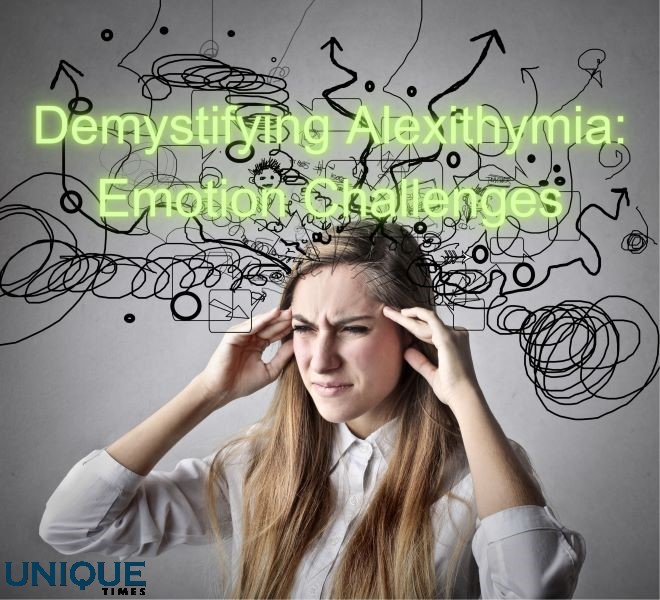Understanding Alexithymia: Unraveling the Emotion Enigma

Emotions are a fundamental part of the human experience, shaping our interactions, decisions, and well-being. However, not everyone experiences and expresses emotions in the same way. One intriguing phenomenon is alexithymia, a condition characterized by the difficulty in identifying and expressing emotions. Contrary to common misconceptions, alexithymia is not a mental health disorder. In this blog post, we will explore the concept of alexithymia, its characteristics, and why it is distinct from mental health disorders.
Defining Alexithymia: Alexithymia is a term coined by psychotherapist Peter Sifneos in the 1970s. It describes a person’s challenge in recognizing and articulating their own emotions. Individuals with alexithymia often struggle with:
- Emotion Identification: They find it difficult to label and identify their emotions accurately, often using vague terms like “good” or “bad” to describe their feelings.
- Emotion Expression: Expressing emotions through words or gestures is a challenge for them, making it hard for others to understand their emotional state.
- Emotion Understanding: They may have trouble comprehending the causes and consequences of their emotions, leading to emotional confusion.
Myth: Alexithymia Is a Mental Health Disorder: One common misconception about alexithymia is that it is a mental health disorder. However, this is not accurate. Alexithymia is considered a personality trait or a cognitive style, not a psychiatric diagnosis. It exists on a spectrum, with varying degrees of emotional difficulty among individuals.
The Distinction from Mental Health Disorders: Alexithymia differs from mental health disorders like depression, anxiety, or personality disorders. While these disorders can affect emotions, alexithymia is more about the cognitive processing of emotions rather than the presence of specific emotional states. In fact, individuals with alexithymia can experience mental health issues, but the two are not synonymous.
Causes and Prevalence: The exact causes of alexithymia are not fully understood, but it may have genetic, neurological, and environmental factors. It can also be associated with conditions like autism spectrum disorder (ASD) and post-traumatic stress disorder (PTSD). Estimates suggest that approximately 10% of the population may exhibit traits of alexithymia to some degree.
Coping and Support: While alexithymia is not a mental health disorder, it can impact an individual’s overall well-being and relationships. Recognizing and accepting one’s alexithymic traits can be a first step toward better self-understanding. Therapy, particularly approaches like cognitive-behavioral therapy (CBT) and emotion-focused therapy, can help individuals develop emotional awareness and expression skills.
Conclusion: Alexithymia sheds light on the complexity of human emotions and the variations in emotional experiences among individuals. It’s crucial to distinguish alexithymia from mental health disorders and provide support and understanding to those who experience it. By fostering emotional awareness and expression, individuals with alexithymia can enhance their quality of life and relationships, ultimately leading to a more fulfilling emotional journey.
Picture Courtesy: Google/images are subject to copyright








